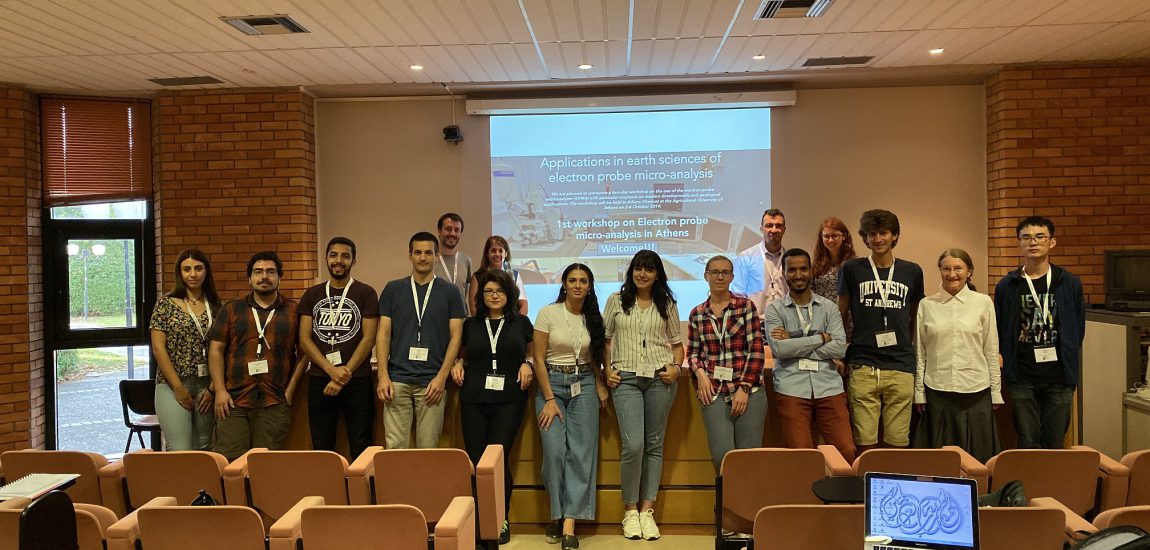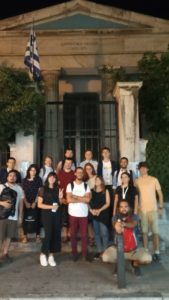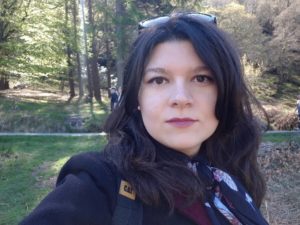
Impressions from the 1st International EMPA Workshop, Athens

The 1st International Workshop on Electron Probe Microanalysis (EPMA) took place in Athens on the 3rd and 4th October 2019, hosted by the Agricultural University of Athens (AUA).
I had no prior exposure to EPMA instruments which are hard to find in Ireland. Therefore, I felt this was a chance I should not miss. Especially when the energy dispersive spectroscopy (EDS) technique, which I use primarily for my PhD, is gaining ground. However, questions remain regarding its qualitative or semi-quantitative/quantitative character compared to wavelength dispersive spectroscopy (WDS) systems which are used either individually in scanning electron microscopes (SEM) or in EPMA instruments.
The workshop itself was very successful with 15 participants from 12 countries and 5 continents. The excellent instructors (Dr Pierre Lanari, University of Bern and Dr Ery Hughes, Caltech) gave invaluable insights due to their experience. In addition to the strictly scientific aspect, the participants of the workshop were offered the opportunity to walk in the historical centre of Athens with an archaeologist (Nikolaos Moraitakis) after the workshop and on the way to dinner. Even though I have visited the sites multiple times in the past, this was a unique cultural experience for me. I could ask lots of questions and it gave us a nice overview of that part of Athens. Additionally, since everything was within walking distance, I believe it helped people to think about places they could visit at their leisure that they might not have been aware of.
The dinner was luscious – mostly traditional Greek food with wine. It was yet another chance to network and get to know people better. Speaking for myself, I will certainly email with many of the participants in the future. In addition, I have given my email address to people so that they can contact me if I can help them in their research. I will email the instructors for sure, because my projects involve working with the EDS technique and when I eventually use EPMA, I would like a second opinion regarding my instrument setup.
The event was designed to include participants from various backgrounds and the basics of the technique were presented so that an audience of both experienced and inexperienced participants could keep up. I have to admit though that my favourite part was the XMapTools tutorial. I feel I benefitted most from this part and I am confident I will make use of that knowledge in the future.
The hosts were very happy with how people interacted during the workshop and they intend to make it annual. They also picked a very nice time of the year in terms of weather (neither too warm nor too cold). Tourists visit Greece all year round but after October, there are fewer tourists so it is easier to find accommodation. Transportation to and from the airport (but also downtown) is excellent as well For those who want to attend, they should book their place promptly since the number of participants is low (about 15 people) for practical reasons.
About the author
Alexandra Stavropoulou focused on Economic Geology for her bachelor’s and master’s degrees at the NKUA (National and Kapodistrian University of Athens). Her bachelor’s thesis looked at gold occurrence in the epithermal deposit of Sappes, Thrace; and her master’s used the N2 BET method on manganese oxide samples from Vani, Milos Island. At the same time, she also worked at a geoarchaeological excavation in Marathousa, Greece, (University of Tuebingen and Archaeology Service of Greece). An internship followed with the Eldoradogold Corporation (Chalkidiki) where she was part of the Exploration Geology department. She is currently on secondment to Oxford Instruments Nanoanalysis, UK, while working on a PhD in Trinity College, Dublin. Her PhD is in Analytical Mineralogy, characterising minerals and rock fabrics using SEM and electron backscatter diffraction (EBSD) detectors. The project is under the auspices of Metal Intelligence, an innovative EU funded training network (ITN). This aims to bridge the gap between academia and industry, whilst promoting efficient material characterisation. It is a collaboration between TCD and Lulea University of Technology (LTU) plus industrial partners Outotec and Oxford Instruments Nanoanalysis, among others.
Her research interests include geobiology and tracking the origins of life.

